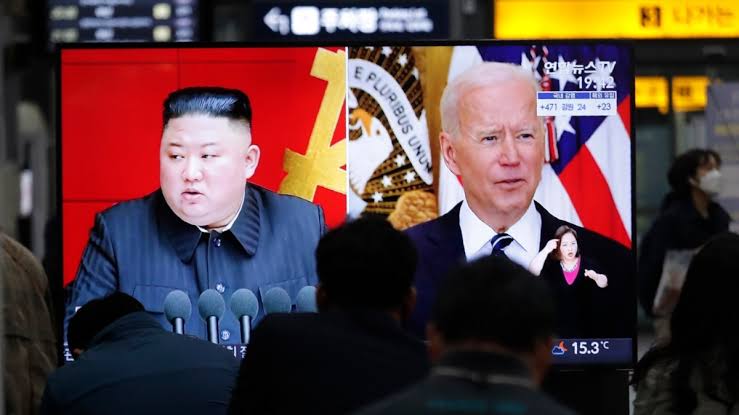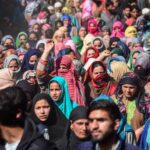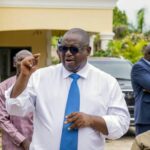By John Okeke
North Korea under the leadership of Kim Jong-un has profoundly altered the balance of power on the Korean peninsula, in large part because of nuclear weapons. A nuclear-armed North Korea poses an entirely different threat not only to South Korea but also to Northeast Asia as a whole.
Hence North Korea must be denuclearized for the peace not only of the Korean peninsula but also the whole international community.
In 2018, North Korea defined “denuclearisation of the Korean Peninsula” as “removing all elements of nuclear threats from the areas of both the north and the south of Korea and also from surrounding areas from where the Korean peninsula is targeted.”
Officials with U.S. President Joe Biden’s administration have begun emphasising the “denuclearisation of North Korea.
North Korea wants normal relations with the US and acceptance as a nuclear weapons state,” is a refrain we have heard often during 13 years of routine negotiations and discussions with senior North Korean officials. It started in 2003 with formal Six Party Talks negotiations in Beijing, continued in the following years with senior North Korean officials in Pyongyang, Singapore and Europe, and ended in September 2016 in a Track 1.5 conference in Kuala Lumpur with the North Korean vice foreign minister.
In all these discussions, North Korea argued for normal relations with the US and acceptance as a nuclear weapons state, as the US did with Pakistan, maintaining that it would be a good friend to the US and a responsible nuclear weapons state.
The US response over this period has been consistent: It would never accept North Korea as a nuclear weapons state for two main reasons. First, due to concerns about a nuclear arms race in the region among countries like South Korea and Japan, who have expressed interest in also pursuing nuclear weapons despite US extended nuclear deterrence commitments. And second, because of the possibility of nuclear weapons and/or fissile material finding their way from North Korea to rogue states and non-state terrorist actors.
Interestingly, the North Korean officials that were spoken to seemingly accepted this US position and, once presented, stopped pursuing this issue. It seemed at the time that they were simply reciting a required talking point, which once covered, they could move on to other subjects.
What was consistent during these discussions was that once the subject of retaining nuclear weapons was off the table, these senior North Korean officials then spent considerable time talking about their desire for good relations with the US; maintaining their pursuit of nuclear weapons was for security and deterrence purposes. With security assurances and normal relations with the US, nuclear weapons would not be needed.
During the past 26 years, we have had fleeting success in negotiations with North Korea. The 1994 Agreed Framework committed North Korea to freeze and eventually dismantle its plutonium production reactor at Yongbyon in exchange for the US (and others) building two light water reactors in Kumho, North Korea. It also committed the North to stop construction of two additional nuclear reactors: a 50 MWe reactor at Yongbyon and a 200 MWe reactor at Taechon.
This agreement ended in late 2002 when North Korea was accused of having a secret uranium enrichment program for nuclear weapons, a violation of the spirit of the Agreed Framework. The US halted construction of the light water reactors, and North Korea, after an eight-year freeze on plutonium separation at their 5 MWe reactor, reactivated it and commenced with the reprocessing of spent fuel rods for nuclear weapons. The 50 and 200 MWe reactors were never reactivated.
At the request of the United States, China launched the Six Party Talks with North Korea in August 2003. After two years of intense talks, North Korea agreed to a September 2005 Joint Statement committing it to



